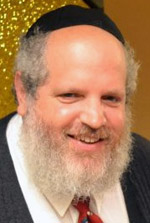Parshat Va’Yechi – And He Lived

CARLSBAD, California — This week’s portion is titled Va’Yechi, which means And He Lived. The portion begins by discussing the final 17 years of the life of Jacob, third, and in many ways greatest, of the Patriarchs. It is ironic that the portion that talks about Jacob’s death is called, “And He Lived.”
By considering this irony we can deduce the Torah’s definition of life.
Jacob had endured a life full of hardships, often at the hands of those who should have been sources of love and comfort. His evil twin Esav was overcome with a homicidal rage directed against him. His uncle Lavan found thousands of ways to swindle him. His daughter was raped and he faced annihilation by hostile neighbors. His son Judah left the family in shame and two of his grandsons died tragically. His beloved son Joseph disappeared without a trace. His son Shimon was taken as a prisoner and his youngest son Benjamin was likewise taken away.
In the end, however, things seem to turn out well for Jacob and his family. While Jacob was on his death bed his children affirmed their belief, in Almighty G-d. In His infinite kindness G-d had previously appeared to Jacob assuring him that even the impending exile and oppression that would befall his family in Egypt would end on a happy note and indeed was for a positive purpose. Somehow suffering is more tolerable when one knows that a huge benefit will be derived therefrom.
How is it possible to define the final years of Jacob’s life, years spent in Egyptian exile, as the best years?
The answer is that when one has a moral code and the life goals of Jacob, it is entirely possible. Before bringing the family down to Egypt, Jacob had sent Judah ahead to prepare the Land of Goshen, which is where the Israelites would live. How did Judah prepare Goshen? The Talmud explains that he established a Yeshiva, an academy where Torah would be learned by the Children of Israel. Interestingly, the Talmud states that the Divine Presence, known as the Shechinah in Hebrew, accompanies us into exile. And while in exile the place where the Shechinah can be most readily experienced is in the environs of the Torah and its commandments. When we study Halacha, Jewish Law, we immerse ourselves in G-dliness and are actually enveloped by the Divine Presence!
Jacob understood that although he would be leaving his ancestral home he would nonetheless remain close to G-d. When this spiritually-conducive atmosphere is added to the fact that he now would have his entire family around him, and that they all had wisely and righteously chosen to follow his path in the service of G-d, Jacob was able to experience profound contentment. He then knew that his life had been a success, despite (or perhaps because of) all of the difficulties.
This lesson is critical for every one of us. We are in the midst of an unprecedented pandemic, which has wreaked havoc on the patterns of life to which we had become accustomed. Nevertheless if we can find the self-discipline to remain focused on the purpose of our lives, we will still achieve a true life, as defined by Torah. We will live life filled with meaning and joy! We will therefore be in a joyous state of mind and then be able to successfully transform the darkness of the world into light. And that mission will be fully accomplished with the speedy arrival of our righteous Moshiach!
Wishing everyone a happy and HEALTHY Shabbos!
*
Rabbi Yeruchem Eilfort is Director of Coastal Chabads and Chabad at La Costa. Rabbi Eilfort welcomes readers’ comments and questions and may be reached at RabbiE@ChabadatLaCosta.com.